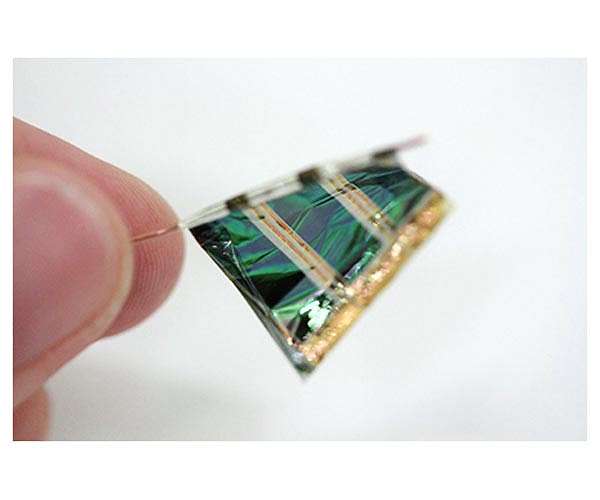Molecular adjustments increase the efficiency of organic solar cells
Organic solar cells (OSCs) offer a promising alternative to traditional inorganic solar cells, thanks to features such as tunable chemistry that allow scientists to fine-tune their properties for better performance. Researchers in Japan have now used this tunability to achieve higher energy conversion efficiency in OSCs.
A recent study published in ‘Angewandte Chemie International Edition’ by researchers from Osaka University reports the development of a new organic semiconductor that surpasses the energy conversion efficiency of standard models.
OSCs are lightweight, flexible and can be mass-produced at relatively low cost, making them well suited for applications such as agrivoltaics, where large areas are used for both agriculture and solar energy production.
Normally, OSCs are composed of two organic semiconductors: one that transports electrons (the acceptor) and one that transports holes (the donor). When excitons – combinations of electrons and positive holes – split into their components, a current is created. The challenge lies in breaking these tightly bound excitons with enough energy from sunlight to create a useful current.
“Reducing the amount of energy required to break down an exciton – the exciton binding energy – makes it easier to convert the light into the desired current,” explains Seihou Jinnai, lead author of the study. “We therefore focused on the factors that contribute to the binding energy, including the distance between the electron and the hole. As this increases, the binding energy should decrease.”
To address this, the researchers designed a molecule with side units that separated the parts of the molecule responsible for holding the electron and the hole. This molecule was tested as an acceptor in a bulk heterojunction OSC alongside a donor material, and the system demonstrated improved energy conversion efficiency compared to standard models. It also performed well as the sole component in an OSC, efficiently converting light into power.
“The molecule we designed shows that the nature of side units in acceptor molecules is key to the exciton behavior and its consequent efficiency,” said Yutaka Ie, senior author of the study. “This result provides an important demonstration of what can be achieved by tailoring chemistry for OSC applications.”
The research suggests that rational design of organic semiconductors could lead to the development of new, high-performance OSCs, including wavelength-selective transparent models. Such advances are expected to improve the role of OSCs in large-scale photovoltaic applications and contribute to sustainable energy solutions.

